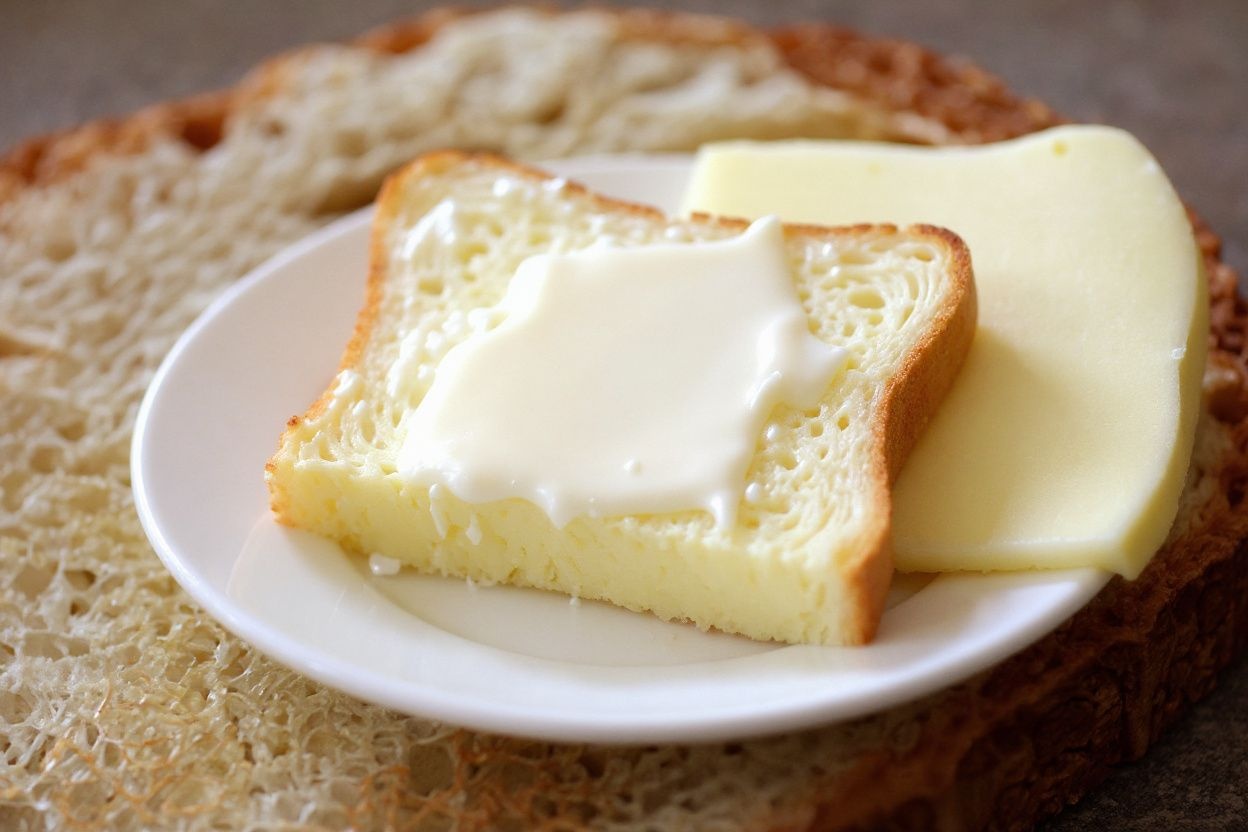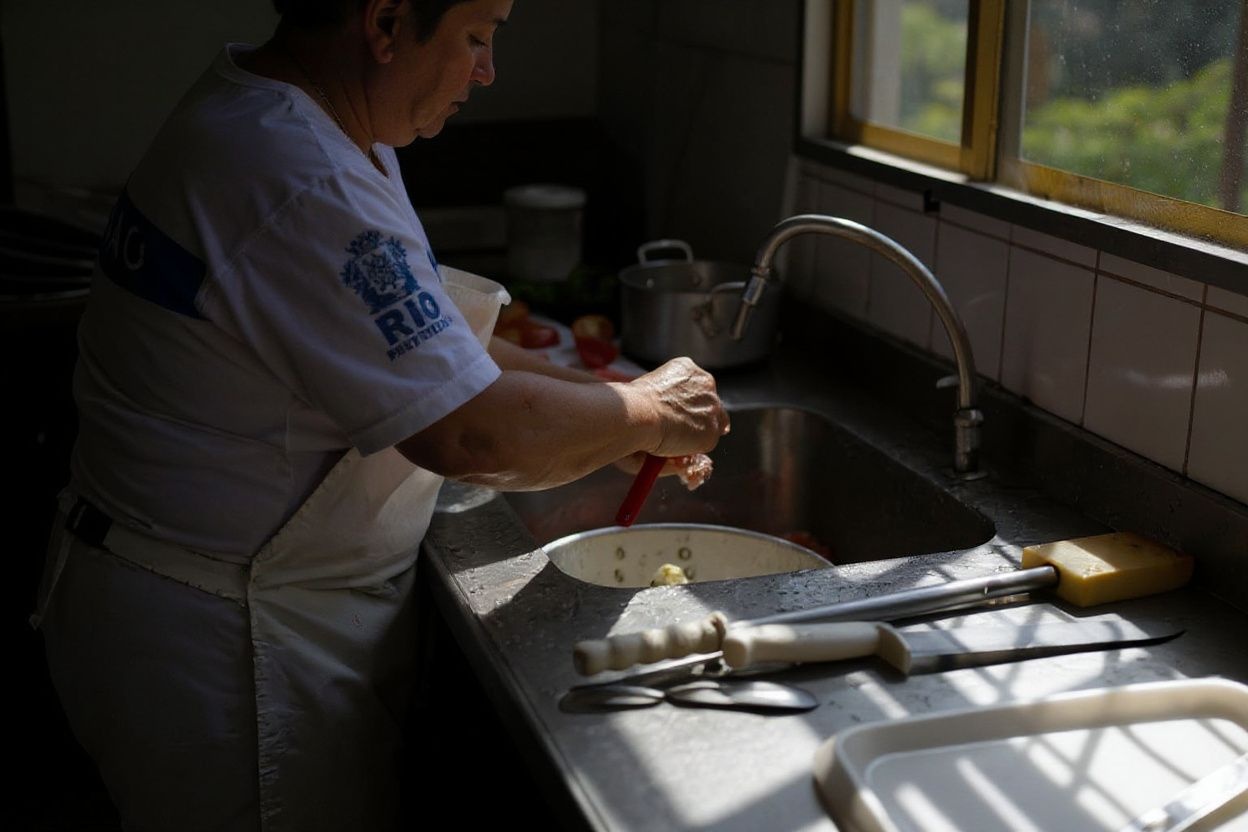
The holy month of Ramadan is upon us, and Muslims are required to fast from dawn to sunset.
There are more than two billion Muslims worldwide, making Islam the second-largest religion in the world, according to the World Population Review.
For Muslim students, fasting can be complicated if you’re in a foreign country without your family and loved ones to practice it with you. You don’t have the luxury of sleeping in and waiting for someone (like Mom) to prepare food for you in the wee hours of the morning, and missing suhoor (pre-dawn meal) too often can turn into health complications pretty quickly.
Our most practical tip? Find suhoor ideas that are easy, quick, delicious, and, most importantly, last throughout the day until you break your fast.
There are a few benefits to practising suhoor as well, such as:
- increasing your basal metabolic rate, effectively helping to lose weight
- maintains blood glucose levels, preventing hypoglycemia in diabetic patients
- providing your body with a balanced meal before you start your day
Ideally, you’ll want to eat some protein, complex carbohydrates and foods high in fibre — or something that combines all three — so that you’ll feel full longer and keep those hunger pangs at bay.
But stay away from these common breakfast choices:

The Prophet Muhammad (PBUH) said, “The best pre-fasting meal for the believer is dates”.
What NOT to eat for suhoor
We know what it’s like to drag yourself out of bed and into the kitchen with one eye open, sleepily grabbing the first prepackaged thing you see and shoving it into your mouth.
Sugary boxed cereal, boxed glazed doughnuts, fried pastries, or even cup noodles — every college dorm’s favourite staples.
On any other day, these options could have worked as a quick bite to eat before class. But during Ramadan, they’re not the best suhoor ideas.
Avoid food and drinks that:
Contains simple sugars
Ditch the cornflakes, rice bubbles, and coco pops. While satisfying to eat, cereal will not keep you full.
Try also to avoid having waffles or pancakes drenched in syrup and butter. As delicious as they may sound, they work well for a burst of energy in the morning, but you’ll feel incredibly lethargic after a couple of hours.
Opt for fruits and vegetables as they’re rich in fibre and contain plenty of vitamins, minerals, and phytochemicals that are good for your health and gut. Bananas are a great way to stay feeling full, for example.

Toast slathered with butter is delicious, but not the best meal for suhoor.
Are high in fat
As tempting as it is to load up your air fryer with pastries or processed meats, you should avoid them as they can cause heartburn, aggravate acid reflux and result in inflammation — in short, you’ll spend your fast suffering.
Saturated fats in animal products like dairy, as well as coconut oil and palm oil, should be avoided.
Instead, replace them with healthier sources of fat, such as food cooked with olive oil, or nuts and fish that contain omega-3 and omega-6. Avocados are unique among other fruits for being high in fat, and can be used as a substitute for creams, salads, sandwiches, and toast.
Are overly salty
Not only will salty foods raise your blood pressure, but they can also make you thirsty throughout the day.
Instant noodles, chips, cheese, and other packaged foods contain a lot of sodium.
Instead, consider eating high-fibre carbohydrate foods like brown rice and wholemeal bread, which take longer to digest and help to sustain energy levels longer.
Are caffeinated
If you usually drink coffee or tea, you may be suffering from caffeine withdrawals throughout your fast.
Instead, stick to plain ol’ water. Some people also suggest coconut water, as it’s refreshing and can help replenish electrolytes without relying on gassy sports drinks.
But don’t chug a large amount of water in one go — it’ll just travel straight through, and you’ll end up thirsty and dehydrated before the end of your fast. Drink moderate amounts of water throughout the evening and the night before, and ensure that your body stays hydrated.
Now let’s look at some easy-peasy meals and recipes for proper suhoor ideas that every Muslim student can make, especially if it’s hard to find halal prepackaged food:

These recipes work great for breakfast on the regular, too.
Suhoor ideas: 9 go-to recipes to keep you full
Overnight quinoa or oatmeal
You’ve probably heard this a million times, but oatmeal is one of the best suhoor ideas as it’s high in fibre and low in calories.
Preparation is simple, too. In a jar, pour some oats in with some milk, honey, and top it off with your fruits or nuts of choice. If you feel adventurous, experiment with mix-ins like cocoa powder, vanilla extract, or even applesauce.
Mix it all up and store it in the fridge the night before suhoor. It’s a creamy, satisfying breakfast that will keep your blood sugar stable and give you energy throughout the day.
If you don’t like the consistency of cooked oats, give quinoa a try. Depending on where you are, having quinoa for breakfast may not have caught on just yet, but this superfood is high in protein, making it ideal for suhoor. It’s also gluten-free!
Use it as a substitute for rice, and cook it with eggs, vegetables, or chicken. Boil it in chicken broth, top off with some sesame oil, and you’ll have a delicious base to pair with your protein of choice.
You can even bake them into bars, cookies, muffins or pancakes. Turn them into breakfast bowls or toss them into a salad — they’re highly versatile.

Fry them, steam them, boil them — eggs are the GOAT.
Eggs
When it comes to suhoor recipes, eggs are a clear favourite among sleepy Muslims waking up to cook everywhere.
As a cheap source of protein, eggs are versatile and easy to prepare, making them ideal for university students. Enjoy them scrambled, sunny side up, poached or made into an omelette with a side of wholegrain toast, and it’ll serve as a filling meal for suhoor.
In Southeast Asia, one of the best suhoor ideas is fried eggs with a little bit of rice and soy sauce — every Southeast Asian’s staple meal in college and university.
Stuck in a dorm with nothing but a microwave? Fret not. You can poach, bake and fry an egg in the nifty machine — all under two minutes and from the comfort of your dorm.
If you have time and want to prep breakfast beforehand, consider making egg bites, a fan favourite recipe on social media platforms like Instagram and TikTok — only because it’s incredibly easy!
You’ll need:
- Eggs
- Cottage cheese
- Vegetables of your choice – spinach is usually the go-to
- Onions – yellow, green or red all work
- Salt and pepper
- A blender – or a fork and bowl if your arm is strong enough
- Optional for spice: Sichuan peppercorn
- A muffin tin
- A oven
How to make quick and easy egg bites:
- Crack the eggs and mix in the cottage cheese, salt and pepper. Blend until smooth.
- Prepare your vegetables of choice by cooking, sauteing, or steaming them, and cut them into bite-sized pieces.
- Assemble the egg bites by dividing the vegetables into the muffin tin, then pouring the egg mixture on top evenly.
- at 350°F for 18 to 22 minutes, or until the eggs are set. Let cool in the pan for 5 minutes before enjoying.
These egg bites can be stored in an airtight container in the fridge for up to three days. Just reheat in the microwave or the air fryer before consuming.
View this post on Instagram
Smoothies
If you’re the type that avoids heavy food in the morning, the thought of downing a meal at 4 am may not sound like one of the best suhoor ideas. Instead, go for a smoothie.
Smoothies are incredibly versatile — you can use any liquids as your base, such as milk, almond milk or soy milk, and add protein powder, vegetables, fruits, Greek yoghurt, peanut butter and even quick-cook oats for a good dose of vitamins and minerals.
Our go-to recommendation is a banana and orange smoothie. You’ll need:
- A frozen banana or two, already peeled and sliced
- An orange, peeled and sliced
- Optional: ginger slices
- 3/4 cup of vanilla yoghurt or milk of your choice
- 1/2 cup of fresh orange juice
Simply combine all ingredients into a blender and mix until smooth. Top it off with some orange zest and enjoy!
Breakfast wraps
If your ideal breakfast is protein-heavy, breakfast wraps are one of the best suhoor ideas.
Make them the night before, or even a week in advance — you can store them in the freezer and reheat them in a pan or a microwave for suhoor.
Most breakfast wraps start out the same. You get some wraps, chop up vegetables of your choice — such as cherry tomatoes, lettuce or thinly grated carrots — and add protein such as eggs, chicken, or ground beef. Top it off with some cheese, and you’ll have a delicious suhoor breakfast.
Here’s our go-to recipe for breakfast wraps:
- Ground beef or grilled chicken
- Eggs
- Chopped onion
- Chives
- Salt and pepper
- Pre-shredded cheese
- Flour tortillas/wraps
- Seasonings like chilli powder, paprika, or garlic powder
- Sauces like mayonnaise, ketchup, chipotle, or barbecue
- Optional: sliced baby tomatoes, red peppers, carrots or spinach
Directions:
- Cook your meat with your seasoning of choice and set aside to cool.
- Pour beaten egg mixture into the pan and stir slowly to make scrambled eggs, and set aside to cool once done.
- Assemble your breakfast burrito: lay out a wrap and spread your sauce of choice, followed by the eggs, meat, and other cut vegetables.
- Sprinkle some cheese and chopped chives in.
- Roll up the burritos and wrap individually with foil or parchment paper to store in the freezer.
- To prepare: microwave for 90 seconds, or toast them in a pan
Chia seed pudding
Chia seed pudding is packed with fibre, omega-3 fatty acids, and protein, which promote satiety and help with digestion. It is also highly customisable, easy to make ahead of time, and can be easily tailored to be vegan or gluten-free.
Mix chia seeds with milk and a sweetener of your choice. Let it sit in the fridge overnight. Top with fruit, nuts, or coconut flakes. Using dairy milk, soy milk, or adding protein powder and yoghurt can increase the protein content.
You could even make a batch over the weekend and store it in the fridge for up to five to seven days.
Hydration is also extremely important during Ramadan, and chia seeds can help with that. They are known to absorb 10 to 12 times their weight in water, helping keep the body hydrated longer.
Yoghurt bowls
Yoghurt bowls are perfect for suhoor, as they are high in protein and fibre, which help reduce cravings and keep you full. You could opt for Greek yoghurt, as it is high in protein.
Customise your bowl with either sweet or savoury toppings based on your preference. Adding granola, nuts, and fresh berries is a good way to boost protein intake.
However, keep in mind that flavoured yoghurt is high in sugar. Opt for plain yoghurt to avoid a sugar spike first thing in the morning.
Avocado toast
Avocado toast combines healthy fats, fibre, and nutrients that provide energy, prevent hunger, and keep you satisfied throughout the day.
Not only is it a good meal for suhoor, but it also requires minimal effort and usually takes only about five minutes to make. You could also customise it with proteins like eggs or smoked salmon to make it a more balanced meal.
You will need:
- One ripe avocado
- Two slices of toasted bread of your choice
- Lemon juice
- Salt and pepper
Here’s what you will need to do:
- Mash the avocado in a bowl
- Add in your lemon juice and seasonings
- Spread it on your toasted bread
Shakshuka
Shakshuka is an easy, healthy meal in Israel and other parts of the Middle East and North Africa. It is very nutritious and high in protein, helping you stay full longer.
The best part about shakshuka is that you only need one pan to make it, and it takes under 30 minutes.
Follow this simple recipe:
- Sauté onions and bell peppers in a pan over medium heat
- Add garlic and your spices, such as cumin and paprika
- Add tomatoes and tomato sauce, then cover it and let it simmer for 15 minutes
- Season with salt and pepper
- Use a wooden spoon to make four to six wells in the sauce, then crack an egg into each
- Reduce the heat and cover the skillet to cook the eggs on low
- Once done, garnish with fresh parsley and serve with toasted bread
Cottage cheese or banana pancakes
Who doesn’t love pancakes for breakfast?
Making cottage cheese or banana pancakes is a healthy and protein-packed alternative that will keep you full for hours.
Banana pancakes are packed with fibre, potassium, and protein, especially when made with whole wheat, oat, or almond flour. They are easy to make, can be sugar-free, and are customisable by adding toppings like Greek yoghurt or nut butter.
Similarly, cottage cheese pancakes are quick to make while also providing a substantial amount of protein — about six grams per pancake.
Here’s a simple two-step recipe for cottage cheese pancakes:
- Combine cottage cheese, eggs, vanilla extract, sugar, baking powder and flour in a bowl
- Pre-heat your skillet and fry your pancakes on each side till they’re golden brown
This is a great meal-prep option, as you can refrigerate the leftovers for up to three days or freeze them for up to three months.
Disclaimer: This article was last updated on February 22, 2026.










